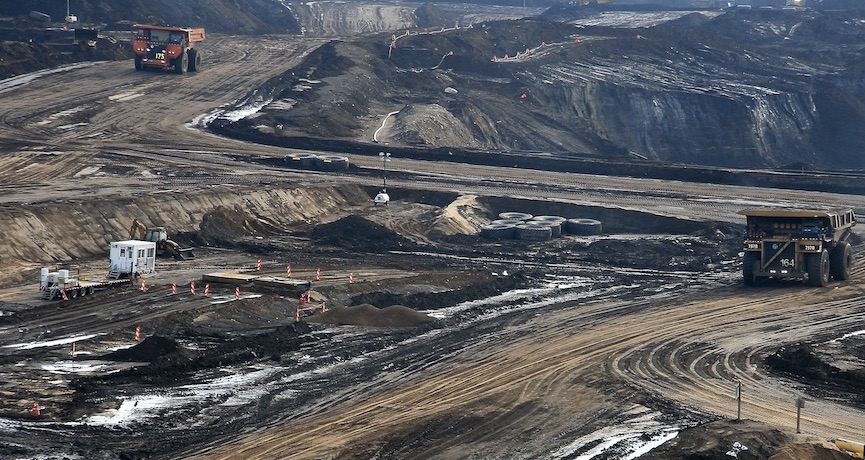At the end of a terrible week, there was a smidgen of solace for Jason Kenney and his United Conservative Party.
Alberta Court of Queen’s Bench Justice Karen Horner rejected Ecojustice Canada Society’s arguments the Kenney government’s so-called “Public Inquiry into Anti-Alberta Energy Campaigns” was just a politicized attempt to intimidate environmental groups and gave the inquiry the nod to continue.
Ecojustice’s goal had been to have the inquiry ruled illegal. But Justice Horner said in her verbal ruling that the environmental law organization hadn’t proved the goal of the inquiry was to intimidate critics of the fossil-fuel industry or that there was a “reasonable apprehension of bias” on the part of the inquiry.
Naturally, Energy Minister Sonya Savage and Inquiry Commission Steve Allan crowed about the ruling — the former huffing that “we make no apologies for standing up for Alberta’s oil and gas industry by thoroughly investigating the widely reported foreign-funded campaign aimed at discrediting the province’s energy sector,” and the latter by saying “I welcome this affirmation and look forward to continuing the work of the Alberta Inquiry.”
Equally unsurprisingly, Ecojustice Executive Director Devon Page expressed his disappointment with the ruling but vowed “to continue using the power of the law to defend nature, combat climate change, and fight for a healthier, safer environment for all people in Canada.”
Page said Ecojustice will wait for the court’s written reasons before deciding whether to appeal. But practical considerations — chief among them the fact Commissioner Allan is supposed to report at the end of the month — may make an appeal unlikely.
Page certainly got this right in his statement. “We lost the court case, but we won the debate,” he said. “The Alberta government’s public inquiry long ago lost all credibility.”
I’ll say! After failing to deliver a report despite getting three deadline extensions, overseeing a budget increase from $2.5 to $3.5 million, spending close to $100,000 buying three goofy papers rich in “junk climate-denial science, bizarre conspiracy theories and oil-industry propaganda,” and doing whatever it’s doing in complete secrecy, Commissioner Allan and the “public” inquiry have a canyon-sized credibility gap.
In fairness, though, Ecojustice can hardly take all the credit for that. Most of it belongs to Allan himself!
Page expressed the concern that the judge’s ruling “emboldens an Alberta government that is completely out of touch with the climate crisis.”
For proof, he said, “we need to look no further than this government’s disastrous attempt to open parts of the Rockies up for coal mining, or its failed attempt to challenge the price on carbon and its upcoming challenge to federal environmental assessment legislation.”
“The court has set a concerning precedent that may embolden other governments to use public resources and processes to silence public debate,” he stated.
Those who share Page’s concerns can take some solace themselves, though, from the fact that if Commissioner Allan manages to deliver a report on May 31 based on what he is known to have done so far, it’s unlikely to provoke much more than derision, and perhaps a few defamation lawsuits.
And it’s no sure thing the commissioner won’t have to seek a fourth extension to hand in his homework, unfinished even though he worked on it during his mid-pandemic “personal” break in Palm Springs.
Queried by reporters, Allan has refused to confirm he won’t have to ask for another extension, and a spokesperson for Savage refused to say if the government had received a request.
Moreover, Allan appears never to have served notice to any of the environmental organizations named by the government ministers as the villains in the supposed anti-Alberta campaign.
“It’s clearly too late now for the Inquiry to serve notices on eNGOs and meet its May 31st deadline,” tweeted University of Calgary legal scholar Martin Olszynski on Thursday. And without adequate notice to organizations facing adverse findings, including adequate time for them to respond, Olszynski said, “the report is DOA from a legal standpoint.”
One way or the other, it is not impossible that the Kenney government, which has its mind on other things right now anyway, might soon wish Justice Horner had agreed with Ecojustice’s arguments and told Allan to pack it in and forget about reporting.
Jason Kenney: the leader God raised up for these times?
If the UCP is looking for any more comfort amid its current misfortunes, which include a plague worthy of the tribulations that afflicted Egypt in the Book of Exodus, Lacombe-Ponoka UCP MLA Ron Orr has published a social media post expressing the view Premier Kenney “is the leader God raised up for these times.”
That part of Orr’s view is not widely shared, it would seem, even in the UCP legislative caucus, and certainly not on the Opposition benches or in the far reaches of the backbenches where Independent MLAs are sent to cool their jets.
Orr may not be the sharpest knife in the UCP drawer, but his notion that the suffering of those with COVID and that of those who “suffer under restrictions” is roughly equivalent may be a unifying idea among his disunited colleagues.
David Climenhaga, author of the Alberta Diary blog, is a journalist, author, journalism teacher, poet and trade union communicator who has worked in senior writing and editing positions at The Globe and Mail and the Calgary Herald.
Image credit: Julia Kilpatrick/Pembina Institute/Flickr




